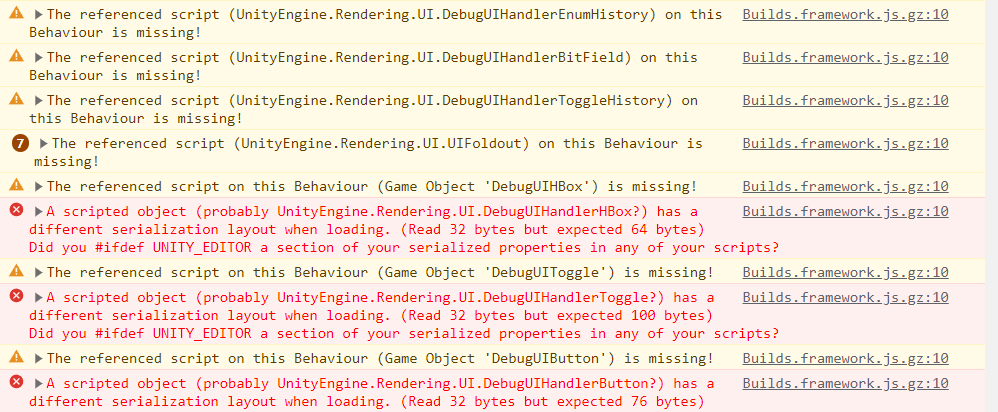As near as I can tell only Resources.LoadAll("") causes this and not
Resources.LoadAll("");
The asymmetry of error is weird - kinda like this old issue with stuttering on loading Quests but not InventoryItem. I had the same stuttering issue and implemented the lookup which addresses the stuttering but not this problem with throwing errors. It doesn’t seem to affect gameplay beyond the occasional but often extreme freezes of the game while it loads. The caching solution in the linked thread makes sure the issue happens only the first time the game loads.
Still I am perplexed why there is this weird asymmetry between LoadAll on Quests but not InventoryItem.
One difference might be the use of [System.Serializable] in Quest but not InventoryItem. Unity seems to not like something about the way Quest is set up.
I will attempt to solve this by making a separate Objective class (I was going to do that anyway) and experimenting on Quests with no reward.
Snippet in text format
Builds.framework.js.gz:10 The referenced script (UnityEngine.Rendering.UI.DebugUIHandlerValueTuple) on this Behaviour is missing!
A scripted object (probably UnityEngine.Rendering.UI.DebugUIHandlerHBox?) has a different serialization layout when loading. (Read 32 bytes but expected 64 bytes)
Did you #ifdef UNITY_EDITOR a section of your serialized properties in any of your scripts?


